Vegetable oils are a quick and easy way to treat dry hair and you can practically reach out your hands and grab any available to you. However, nothing is ever that simple. Depending on your hair needs some will some will be better equipped to address those needs than others. Moreover, regardless of their “curriculum”, you may prefer one over the other based on how your hair feels. However, as you enter into your natural hair journey I believe there are 3 vegetable oils everyone should have to care for their tresses.
When I began my transitioning journey I read a lot of blog posts, articles and studies and watched endless videos of natural hair vloggers all praising the qualities of a specific oil or oils. As a newcomer, it was hard making a decision on which to go for as I wanted to bet on the best one.
At one point, it was almost like having haggling voices in my head all competing against each other. It would have been very easy to fall into the product junkie trap as we all want our hair to succeed and excel, but no that was not me. Being organised and very pragmatic I decided on the basic and only bought one. Which one, you may ask?
Well, I went for an oil I still use and love to this day. You may think it’s not enough to start with but you don’t need scores of products for your hair regimen and maintenance. In fact, if you do that it can hinder your journey. You won’t know what is working or not. However, I have since tried other oils and there are 3 I would recommend at the start of a hair journey.
Extra Virgin Olive Oil
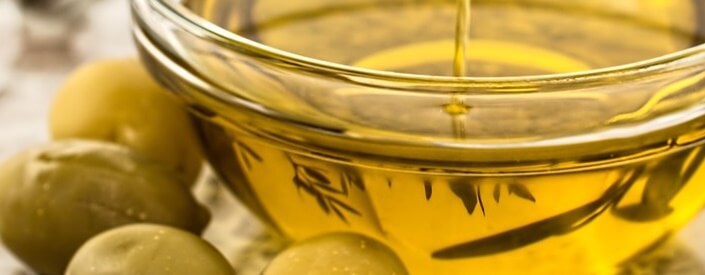
I hope this is not exactly a surprise for you. Extra virgin olive oil (EVOO) is amazing and I chose it primarily because it’s easy to get, cheap and most likely already available in your kitchen. It goes without saying that it needs to be extra virgin because it is cold pressed, unrefined and therefore retains all the properties that are beneficial to our hair and body.
The second reason I chose EVOO for you is that it is a penetrating and sealing oil, meaning that it’s an oil that penetrates the hair strand but still leaves a protective layer around it, which is good for sealing in the moisture. This oil is loaded with antioxidants that help fight against free radicals to delay grey hairs, which also give EVOO its anti-inflammatory and anti-bacterial properties helping to fight off fungi and bacteria, such as dandruff.
Additionally, EVOO helps prevent or slows down hair loss has it blocks the production of the DTH hormone. This is all wonderful, isn’t? And it’s been right there all along in your kitchen. Use it and you can expect your hair to be conditioned and moisturised as it will smooth your hair, help delay moisture loss and increase manageability.
How can you use it? There are endless possibilities, you can use it in your pre-poos, hot oil treatments, add it to your deep conditioners or DIY concoctions, to seal your hair, to prevent frizz, to moisturise your hair after you spray it with some water,…see?!Endless.
A stand-in… just in case: Use grapeseed oil, it is one of my favourite oils. This was the only oil I bought when I started my transition to natural hair because I already had EVOO. It’s one of the lightest oils available so it won’t weigh your hair down if you have fine hair, but will have shine while it conditions and moisturises your hair.
Coconut Oil
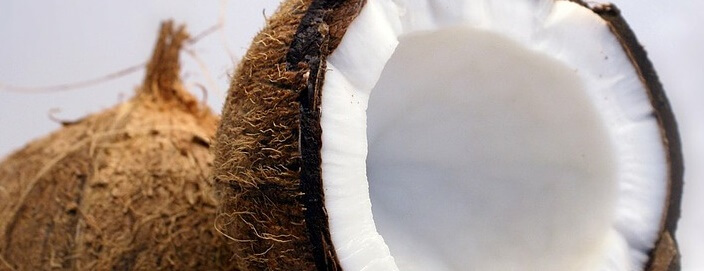
I love, love, love the smell of coconut oil, don’t you? Mind you, this wasn’t love at first sight, it grew on me. What can I add about an oil that has so many people “falling at its knees”? Not much probably, but let me try. To start with it smells lovely, but I’ve already said that. Moving on, it’s a light penetrating oil that helps prevent hygral fatigue (excess water intake in hair), protein loss (that leads to dryness), it’s great for high porosity hair, it strengthens your hair, adds shine, conditions, help to moisturise…the list goes on.
Considered a super food due to its unique combination of fatty acids, vitamins, saturated fat and antioxidants it has anti-viral, anti-bacterial and anti-fungal abilities so it’s good to help treat any scalp conditions you have such as dandruff or psoriasis, it promotes hair growth and a healthy scalp.
As with extra virgin oil, it has a multitude of applications so try them in the same way. I especially like to use unrefined extra virgin coconut oil as my oil part in the LOC method. It prevents moisture and protein loss, seals my hair, makes it stronger and it doesn’t feel greasy.
A stand-in… just in case: Use avocado oil, it is a light oil that also penetrates the hair strand and is full of vitamin E that promotes hair growth and delays ageing.
Castor Oil
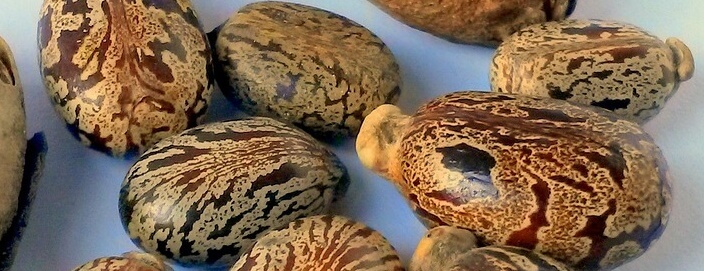 Out of the three oils this might be the one that will divide people’s opinions. Some love it while others simply don’t like it at all. So why is it that I’m putting this oil on the list if it’s so controversial? Because I believe it can be a great addition to the group.
Out of the three oils this might be the one that will divide people’s opinions. Some love it while others simply don’t like it at all. So why is it that I’m putting this oil on the list if it’s so controversial? Because I believe it can be a great addition to the group.
Ok, so castor oil is thick (some may say too thick), has a funny smell and can be too heavy and coating on the hair if you don’t like that. However, this oil has many beneficial properties within its composition that can make it a must in your stash of oils. If you have dandruff, eczema or a dry scalp this is the oil for you. Have you noticed your hairline is thinning? Then castor may be your go-to oil to regrow those edges. While there is no hard scientific proof of its hair growing powers, the truth is you’ll find many vloggers journaling the opposite, and I too am inclined to believe. There’s just too many people showing results for it to be a coincidence.
However, if you want to use it for hair growth Haitian Black Castor Oil has a composition that seems to perform better for hair care than Jamaican Black Castor Oil which is more suited for making soaps (e.g. your shampoo bars). But, growth is not the only advantage you have. This oil improves thinning hair, treats an itchy scalp, moisturises dry brittle hair which improves breakage, improves the appearance of split ends, adds shine… Oh, and this oil is so coating that moisture will be well sealed inside your hair for longer, perhaps a perfect choice for winter.
If you still, don’t like this oil pure, try blending it with a carrier oil such as olive oil or grapeseed oil, it won’t be as thick and if the scent still bothers you, you can always resort to a good old fashion essential oil to mask it. This is what I personally do, as I also find this oil too thick, but can’t deny its qualities.
Nevertheless, I wouldn’t use it as a pre-poo or in a hot oil treatment because it’s just too thick, it doesn’t come out easily and makes my hair feel too greasy. This oil might be better suited for those the thirsty high porosity hair as it will lock in the moisture. But, if it feels greasy blend it with another oil.
A stand-in… just in case: Use jojoba oil this is the oil that is closest in composition to the natural oils (sebum) produced by our sebaceous glands. Just as sebum, it is a thick-ish oil that forms a protective layer around the hair.
Now off you go…
Check to see what oils you already have or find them in your nearest grocery shop, organic or beauty supply shop and get yourself ready to spoil your hair.
What is your favourite oil? How do you use it? What doe it do to your hair?
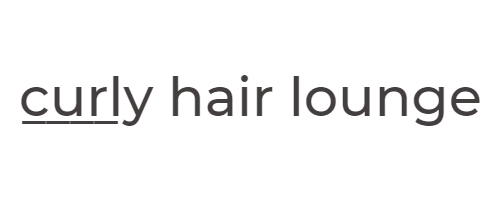
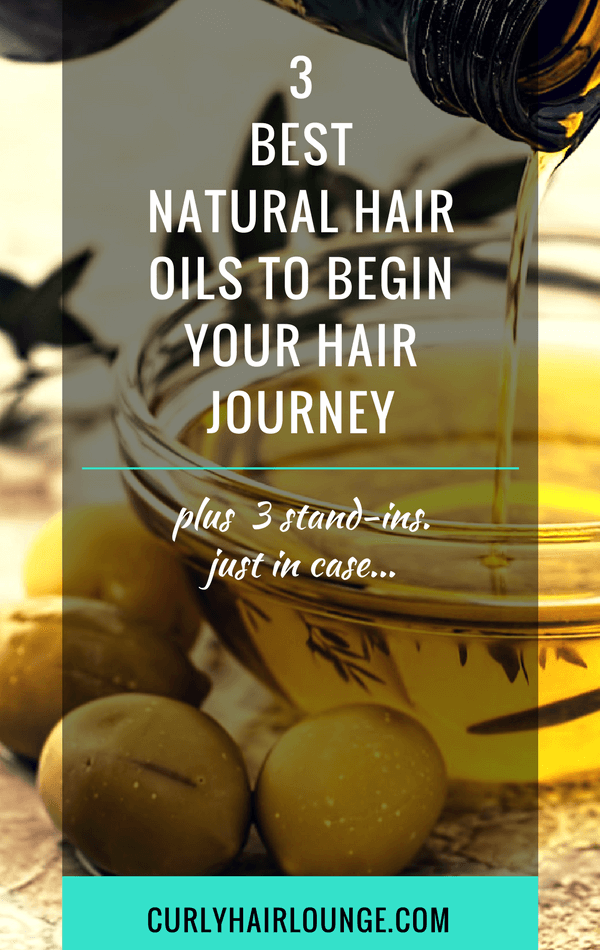
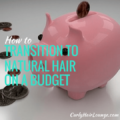

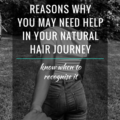
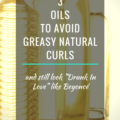
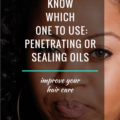
2 thoughts on “3 Best Natural Hair Oils To Begin Your Journey”
Ever since I started cooking with coconut oil, I am not using it more on my hair. I should go back to my old roots.
Hi there Lebogang!
Coconut oil is the BOMB! I love it and the smell is amazing. I use on my concoctions and my LOC Method. So what oil(s) are you using now, if not coconut oil, and how do you use it?